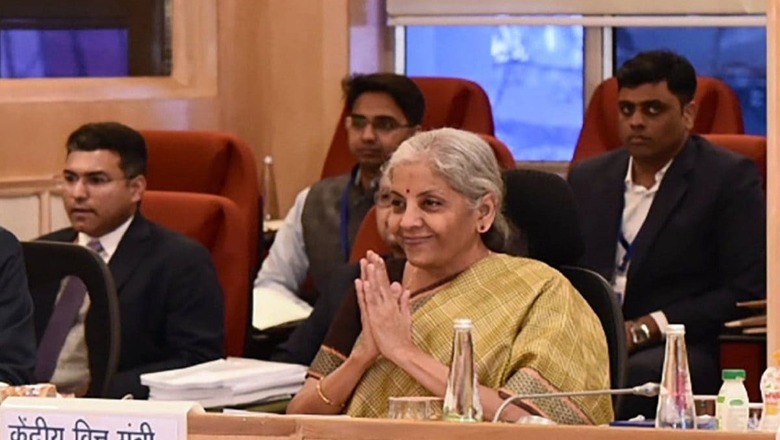
views
Union Budget 2024-2025: Finance Minister Nirmala Sitharaman will present the Budget 2024 on February 1, 2024. It will be an interim Budget as the elections for the Lok Sabha are due early next year.
Interim Budget
An interim budget is a temporary financial plan presented by the government when general elections are looming or a new government is set to take office. It serves as a provisional arrangement to meet the expenditure needs of the government for a short period until a new government can formulate and present a full-fledged budget.
A Union Budget is valid till the end of the financial year on March 31, hence the government has speeding rights only till that date. For the government expenditure occurring between March 1 until a new government is formed, the incumbent government needs permission from the Parliament to incur costs in the interim period. Hence, the interim Budget is released.
The interim budget generally includes estimates of expenditure, revenue, fiscal deficit, financial performance and projections for the upcoming financial year of the incumbent government. However, it cannot include any major policy announcements. According to the Election Commission’s code of conduct, an Interim Budget cannot include any major scheme as it may influence the voters. The incumbent government is not supposed to present the Economic Survey with the interim Budget.
What is Vote on Account?
Through the Interim Budget, the Parliament passes a vote on account to meet the essential government expenditures like salaries, ongoing expenses in various sectors etc before the general elections. It is passed as a convention without any discussion. It is usually valid for up to two months but can be extended.
Interim Budget vs Vote on Account: Major Differences
An Interim Budget consists of both expenditures and receipts whereas a vote-on-account lists only the expenditure beared by the government.
An Interim Budget has to be discussed in the Lok Sabha and then passed, on the other hand, the Vote On Account deals specifically with expenditure and is passed by the Lok Sabha without any discussion.
An Interim Budget can propose changes in the tax regime whereas the Vote on Account cannot change the taxes at any cost.
An Interim budget is similar to a full budget but only has projections for a few months whereas the vote-on-account can be passed through the interim budget.
An interim budget is valid for an entire year on the other hand a vote on account is usually valid for 2 months.
Significance and Impact
The distinction between these budgets is crucial in understanding India’s fiscal planning and governance. While the interim budget maintains financial stability during transitional periods, the full-year budget acts as a roadmap, guiding the country’s economic direction for an entire fiscal year.
Economic Implications
Stability vs. Vision: Interim budgets ensure continuity and prevent financial disruption during political transitions. In contrast, full-year budgets chart the course for economic growth, capital investment, and social welfare initiatives, laying the groundwork for India’s progress.
Investor Confidence: The full-year budget often influences investor sentiment, as it showcases the government’s commitment to various sectors and reforms. It can drive economic activities and shape market expectations.
In essence, the distinction between India’s interim budget and full-year budget lies in their scope, duration, and purpose. While the interim budget acts as a temporary measure to meet immediate financial needs, the full-year budget encompasses a comprehensive fiscal strategy aimed at driving long-term growth and development.
















Comments
0 comment